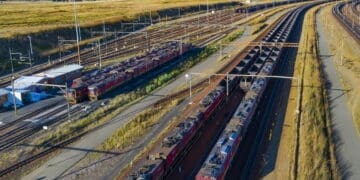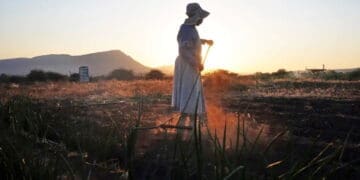While some projections indicate the economy will grow by 1.7% in 2025, township entrepreneurs say the reality on the ground tells a different story of rising costs, limited support and slow recovery.
Despite improved electricity supply and inflation easing to 4.2% this year, many small businesses continue to face rising costs, limited access to funding and exclusion from state-backed opportunities.
The projected growth, highlighted in the MasterCard Economics Institute’s Economic Outlook 2025, is driven by better infrastructure, tourism recovery and steady consumer spending.
But businessowners say the promises are not translating into action where it matters most.
Thabiso Nong, who co-owns Double Identity Events in Rosslyn, Pretoria, said running a business had become a juggling act.
“The year 2024 was one of our hardest,” said Nong. “Load-shedding, high transport costs and inconsistent consumer spending really affected both our events and perfume sales. Even now, we are still trying to recover.”
Nong’s business offers catering and events, and sells perfume in partnership with Perfume Co Africa.
She said perfume was added as an additional income stream to cushion seasonal dips in event bookings.
“We had to think smart. Perfume has consistent demand and helps us stay afloat during off-peak months. But it’s not enough when you can’t get funding or scale your operations.”
While macroeconomic data points to a stabilising economy, Nong said township businesses were often left out of government support structures and relief programmes.
“We’ve applied for government funding, but the process is long and unclear. Sometimes you do not even get feedback,” she said.
The report notes that South Africa’s economic rebound is being held back by structural issues like underinvestment and labour market pressure challenges, which small businesses know all too well.
For Nong, access to capital and marketing remains the biggest hurdle.
“We can’t grow or hire if we don’t have cash flow. Even promoting our products online is tough without a consistent budget.”
Unlike large firms that benefit from corporate relief and bank loans, township entrepreneurs often operate informally, with limited digital infrastructure and minimal financial support.
“If 2025 is really a ‘construction year’ like they say, then let us see black-owned and youth-run businesses actually getting a piece of that R20 billion pie,” Nong said.
“We are ready to contribute, but we need doors to open.”
































































